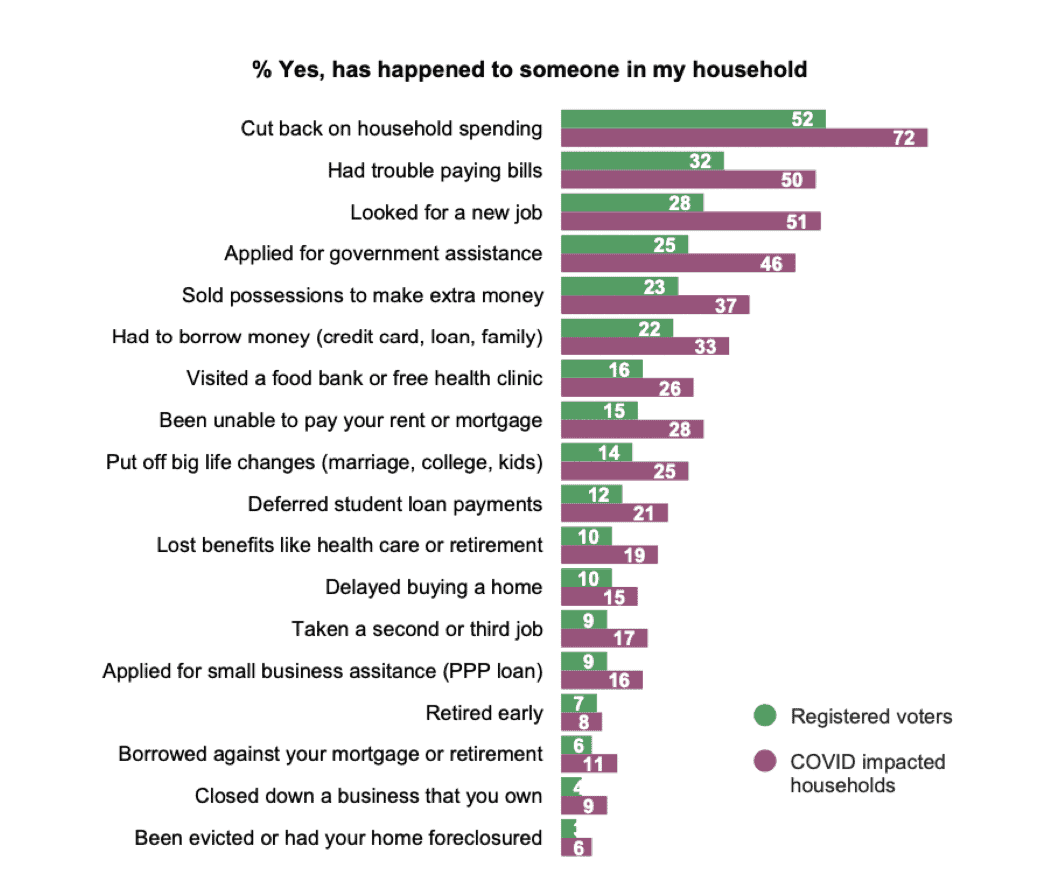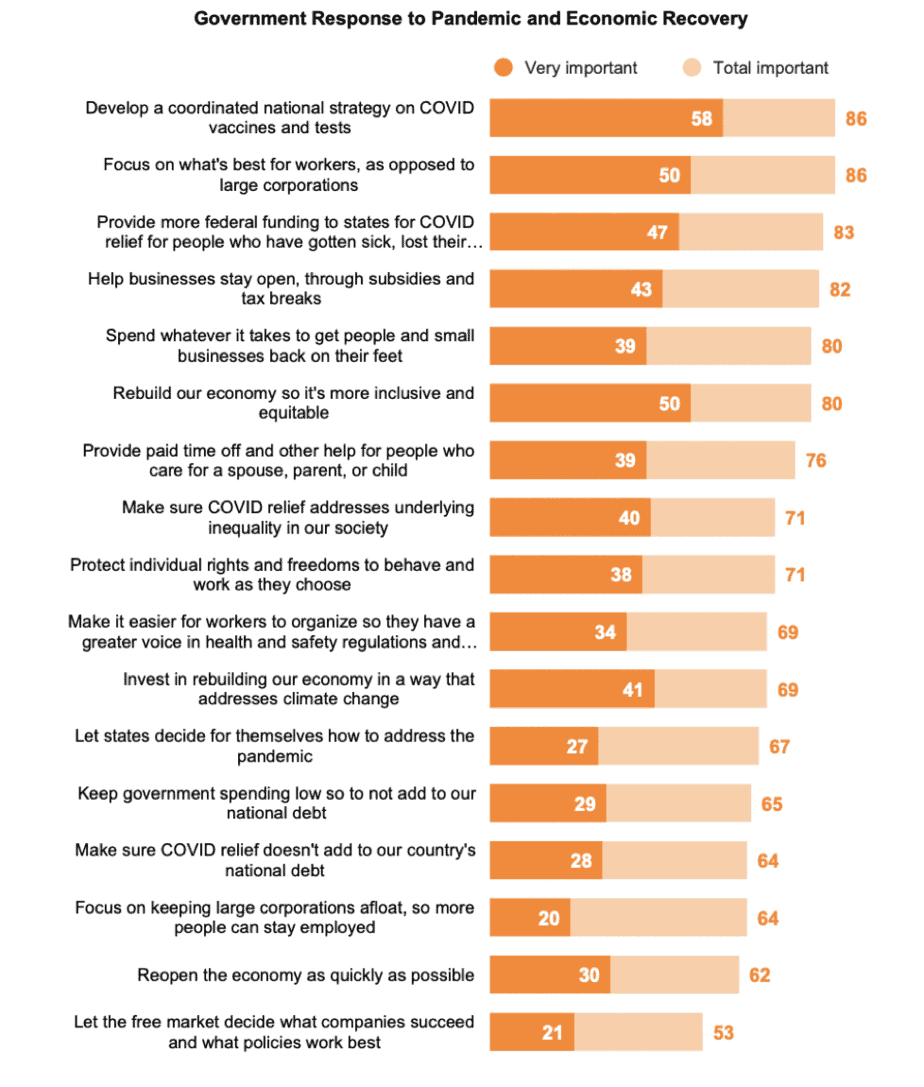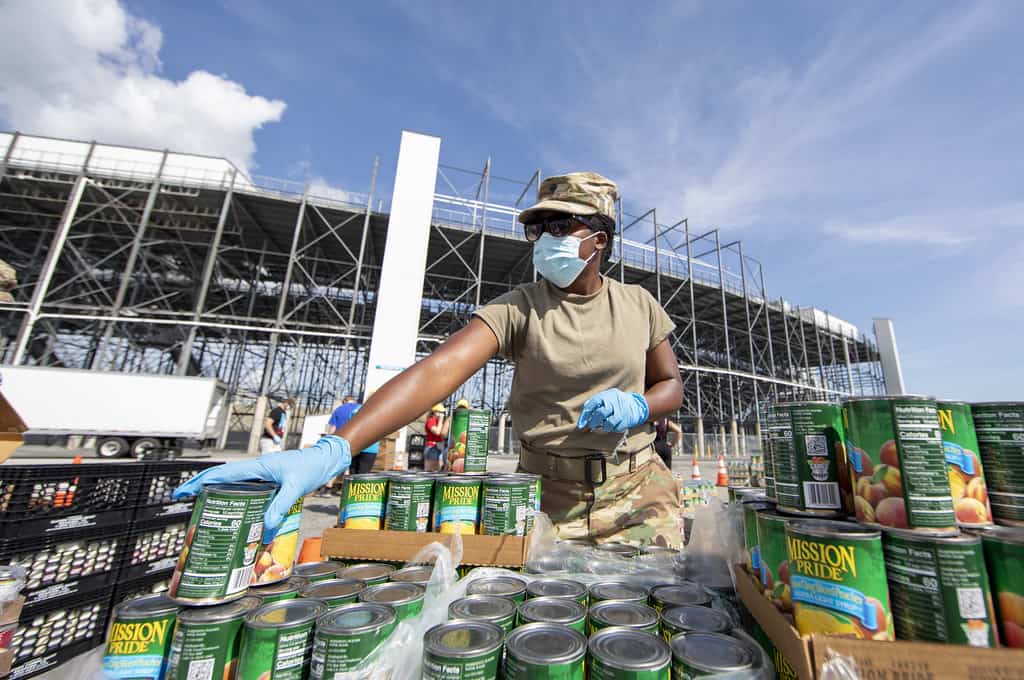By Alexis Krieg, Senior Manager, Strategic Communications
Tonight, Donald Trump and Joe Biden will square off in their first debate. Of the six topics to be discussed, the two weighing most heavily on the minds of most Americans are COVID-19 and the economy.
The number of COVID-19 cases continues to rise, and as of Friday, more than seven million people have been infected in the US. The governors of Missouri and Virginia were among the new cases last week.
These grim figures have emerged against an even more grim economic backdrop. While conservative economists and commentators alike have lately taken to cherry-picking economic indicators to insist that the worst of this economic crisis is over—as I’m sure President Trump will as well during the debate—the reality of everyday Americans tells a different story.
As a former staffer in Elizabeth Warren’s Senate office, and a national spokesperson on her campaign, I learned that data rarely reflects the fuller, lived experiences of real people. On the campaign trail, standing off to the side as she posed for thousands of selfies, people shared their stories with her. I heard snippets of conversations in hushed tones, with words like “evicted,” “bankrupt,” and “drowning in medical debt.”
People were suffering even before the pandemic began, and COVID has made it worse for so many more.
But the numbers that regularly make headlines, like unemployment rates, GDP growth, and stock market gains, don’t tell the full story. That’s why we’re launching the Omidyar Network Economic Tracking Survey. This will monitor changes in voters’ perceptions and experiences related to the economy during the COVID-19 pandemic, as well as Americans’ beliefs about how the country’s economic recovery should be approached.
We’re making the first wave of that survey public today. It was designed and analyzed by GBAO Strategies, and conducted via online survey from September 12-16, 2020. One thousand interviews were completed with registered voters, and an additional 150 interviews with voters in households where jobs, hours, or pay have been lost because of the coronavirus. The sample is representative of registered voters nationally along lines of party identification, gender, region, age, race/ethnicity, education, and other characteristics. You can dig into all the numbers here.
We found that more than half of voters have cut household expenses because of COVID, and nearly a third have had trouble paying their bills. Many also feel economically challenged in other ways and are taking action to reduce their expenses or find new income. About a quarter say they or someone in their household has looked for a new job; sold extra possessions to make money; taken a payday loan, credit card or family loan; or applied for government assistance like Medicaid, unemployment, or SNAP.

This survey concretely defines the economic impact of the COVID—someone in a household losing a job, hours or pay directly because of the virus—which constitutes roughly 40 percent of voters. They are disproportionately people of color and under the age of 35, with more white women than white men.
COVID-impacted households are, as one might expect, keenly worried about their own immediate personal economic situation. Majorities of this group are concerned about mounting debt, being laid off, losing health care, or being exposed to the coronavirus at work.
Like my former boss, I also believe it’s not enough to identify the problem. You’ve got to have a plan. So, we asked voters to rank different approaches the government could take to address the pandemic and resulting economic crisis. Not surprisingly, 86 percent of voters believe it’s important to develop a coordinated national strategy on COVID vaccines and tests.
We also found that voters—regardless of their party identification—clearly prefer progressive, investment-centric policy prescriptions. Majorities find it important for the government to “spend whatever it takes,” “focus on workers as opposed to large corporations,” and “provide more federal funding to states for COVID relief.”

Majorities of Democrats and Republicans agree on the best solutions to climb out of this crisis. At a time when partisan differences are rarely set aside, that should speak volumes.

Despite what we may hear in tonight’s debate, the most important voices are those of the American people. They have said loud and clear that they are hurting. As the virus continues to spread and unemployment benefits and stimulus dollars disappear, that pain will only increase. Policymakers on both sides of the aisle and at every level of government must take immediate and significant steps to control COVID, and put everyday Americans on a path to economic recovery.

